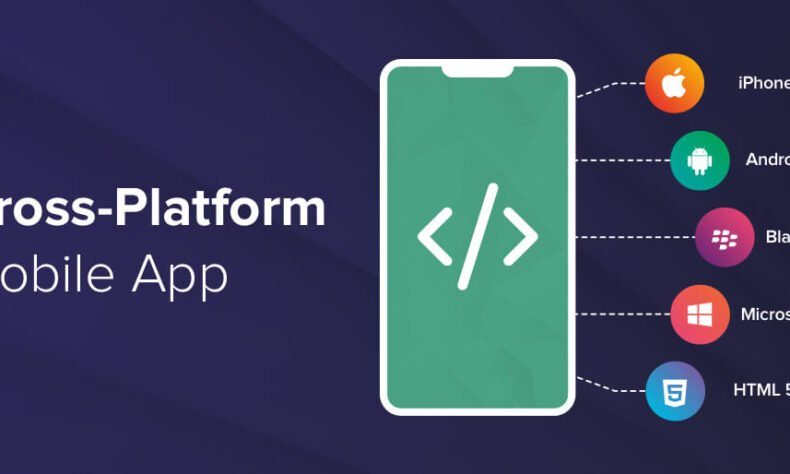
Cross-platform mobile apps are the polar opposite of native apps in that they adhere to the mantra of “one code for all platforms.” In other words, because this methodology does not limit the use of the application to a specific platform, a developer can compile supportive builds for the web and all mobile platforms with a single source code written using hybrid or cross-platform application development. Despite this, because iOS and Android have such a large market share, the majority of cross-platform mobile apps are only used in these operating systems. These apps’ code is written in HTML5 and runs on Apache Cordova, which is platform-independent and provides a simple development environment for programmers.
When it comes to cross-platform app development languages, there are several options, which makes it simple. As a result, a programmer has more options and feels freer to work within his strengths. Cross-platform app development languages and cross-platform mobile app frameworks abound.
There are numerous reasons to use cross-platform app development methods when creating a mobile app. It offers numerous benefits and makes developing a cross-platform mobile app a breeze. The reasons are as follows:
1- A unified database with multiple access points
It is one of the key features and benefits that place cross-platform mobile apps ahead of native mobile apps. There is no need for separate streams to make changes and engage all of the code and data for implementation. Instead, you only need a single reusable database for access to the development process.
2- Less expensive to develop
Because of the unified database, the development process is shortened, and the development and maintenance costs for cross-platform apps are also low. The development price automatically decreases as a result of these two major factors. Even the debugging process for a cross-platform mobile app is quick and requires fewer people to complete. In terms of development costs, a cross-platform app is 30-50 percent less expensive than a native app.
3- Reduced development time
Because this approach encourages code reusability and already takes care of platform compatibility, developing a cross-platform mobile app takes less time than developing a native mobile app, which requires a lengthy process and different methods for each specific app. In comparison to a native app, the development process of a cross-platform app is more straightforward, and it takes 20-35 percent less development time when compared to the development time of a native mobile app.
4- Performs nearly as well as the native app
Various platforms for implementing cross-platform solutions have been introduced. The main advantage of these platforms, such as PhoneGap and Appcelerator, is that they allow developers to easily convert code into HTML5, which can then be used on additional (required) platforms.
5. Faster access to the App Store
These development tools enable businesses to bring their mobile apps to market much more quickly. Tools such as Ionic and React Native provide a framework for developers to create custom-made apps in a fraction of the time it would take to code apps for each mobile OS separately.





